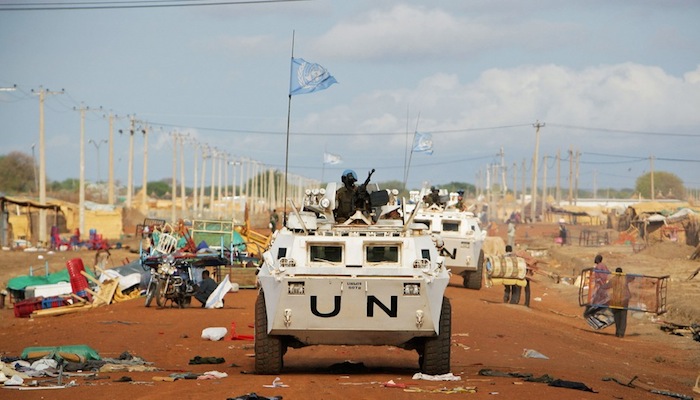ليبيا والاستحقاقات الانتخابية تجارب الماضي وتحديات المستقبل
Libya and the Electoral Process Past Experiences and Future Challenges

اعداد : د. الفيتوري صالح السطي , د. محمد هدية درياق
- المركز الديمقراطي العربي
- مجلة اتجاهات سياسية : العدد الثامن عشر آذار – مارس 2022 المجلد 5 , دورية علمية محكمة تصدر عن المركز الديمقراطي العربي “ألمانيا –برلين” تعنى بنشر الأوراق البحثية والتقارير والتحليلات السياسية والقانونية والإعلامية حول الشؤون الدولية والإقليمية ذات الصلة بالواقع العربي بصفة خاصة والدولي بصفة عامة.
- تعتمد مجلة ” اتجاهات سياسية ” على تقصي الحقائق وتقديم التحليلات العلمية عن طريق مساهمة نخبة من الكوادر في متابعة والإشراف على ما يصلها من تقارير وتحليلات حيث يترأس أقسامها أساتذة في العلوم السياسية والإعلام والقانون، من الجامعات العربية ذوي الخبرة.
Journal of Political Trends
للأطلاع على البحث “pdf” من خلال الرابط المرفق :-
ملخص :
مرت ليبيا بعدد من الاخفاقات في مرحلة التحول الديمقراطي بعد ما سمي بالربيع العربي وتحديداً بعد أول عملية انتخابية 2012، لأنها مرحلة انسلاخ من نظام لأخر ترك آثاراً عميقه فيها، وآلت البلاد إلى حالة الفوضى واستنزاف الموارد وتولت قيادة البلاد مجموعات ليس لديهم كفاءة تعمل لمصالحها الشخصية أو الجهوية أو لصالح اجندات خارجية.
غير أن تلك التجارب يرى البعض أنها مراحل لابد من المرور بها نظرا لحالة التصحر والتقوقع التي مر بها المجتمع الليبي، حيث جاءت مرحلة المؤتمر الوطني واستبشر الليبيين به خيراً، غير أنه هناك عديد من الاخفاقات التي صاحبتها منها عدم الوعي السياسي بالعملية السياسية، وقلة المعرفة بأهمية التداول السلمي للسلطة، ونتج عن ذلك وصول خيارات سيئة لقيادة البلاد نتج عنها عدم اعتراف البعض بنتائج الانتخابات والذي بدوره أنتج الانقسام المؤسسي والسياسي وانتشار الفساد، وبنفس الاخفاقات تم انتخاب مجلس النواب وكانت مخرجاته أسوأ من سابقتها وزادت معاناة المواطن وساء الوضع في ليبيا واستمر العبث بمقدرات الشعب الليبي.
غير أن تلك الإخفاقات هي بمثابة مدرسة تعلم منها الشعب واتخذ منها المناعة من أجل الانتصار مستقبلاً في المسلك الديمقراطي، وبعد طول انتظار جاء موعد لتنفيذ الاستحقاقات الانتخابية، موعداً قد مضاء واخر لم يأتي، غير ان هناك بعض الاصوات التي تسعى لبقاء كبوس التشتت وتعدد الحكومات والمؤسسات وتقف دون وحدة الدولة ورحيل الأوصياء على ليبيا والليبيين، منها وجود مجموعات مسلحة ترفض قيام الدولة الديمقراطية وتريد الاستمرار في السيطرة واستنزاف الموارد، وصدور تصريحات عن بعض الشركاء في الوطن بعدم الاعتراف ببعض الاشخاص حتي وان تم انتخابهم من الشعب، وآخرين ينصبون أنفسهم اوصياء على الليبيين وغيرها.
Abstract
Libya went through a number of failures in the process of democratic transition after the period that was called the Arab Spring, specifically after the first electoral process in 2012 because this period is considered as a phase of disengagement from a regime that left deep traces of a new regime, after which the country descended into chaos and depleted resources. In addition, the country was led by groups that had no jurisdiction but to act for their own personal or regional interests or for foreign agendas.
However, some view these experiences as stages that must be overcome due to the state of desertification and isolation that Libyan society is experiencing. Where the stage of the National Congress came, and the Libyans rejoiced in it, but there were many failures that accompanied it, such as the lack of political awareness of the political process, and the lack of knowledge of the importance of the peaceful transfer of power. This resulted in the arrival of bad choices for the country’s leadership and the failure of some to recognize the election results, which in turn produced institutional and political division and the spread of corruption. With the same failures, the House of Representatives was elected, and its outcomes were worse than the previous ones, the suffering of the citizen increased, the situation in Libya worsened, and the tampering with the capabilities of the Libyan people continued.
However, these failures are like a school from which the people learned and adopted their immunity for future victory in the democratic path. After a long wait, a date was set for implementing the electoral process, and it was postponed indefinitely. There are some voices who seek to perpetuate the nightmare of dispersal and multiplicity of governments and stand without the unity of the state and the departure of the guardians of Libya and the Libyans. Among these voices are armed groups that reject the establishment of a democratic state and want to continue to control and drain resources. In addition, statements were issued by some of the partners in the country not to recognize some people even if they were elected by the people, and others who made themselves guardians of the Libyans and others.



